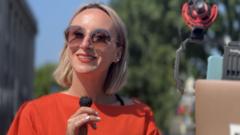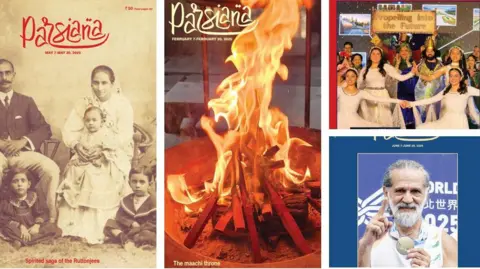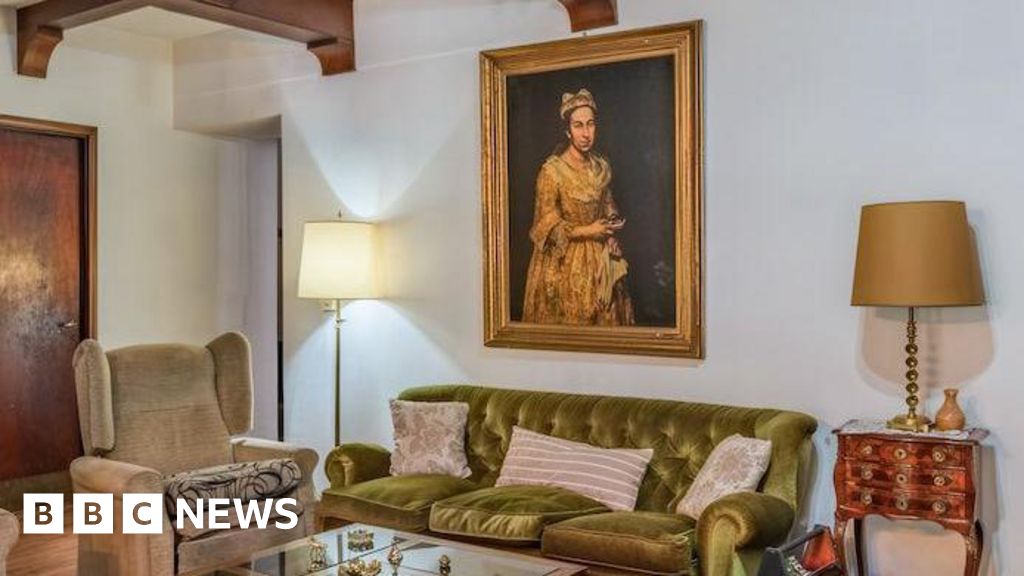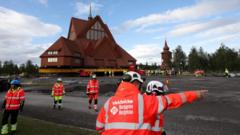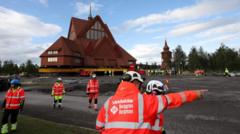I was all set for an afternoon adventure—my bags were packed, and excitement bubbled inside me—when I rushed downstairs, only to be greeted by a shocking void. The spot where my cargo bike had been secured to the wall of my Amsterdam home was empty, its double lock mercilessly cut away.
My daughter, convinced the bike must have been simply relocated, dashed between the other bikes. But as we scanned the area, we came to a grim realization: it was truly gone. In a country where cycling is woven into the fabric of daily life, the loss felt unfathomable. I don’t own a car, relying solely on this bike for everything—from school runs to grocery shopping.
This was not just any bike; it was a specially retrofitted mobile broadcasting studio, called the Bike Bureau, built by me and my colleague, Kate Vandy. Born from a simple question my daughter once posed, "Why don't you just tell people the news now?", this bike allowed me to report live from breaking news situations. With my daughter by my side, it displayed the beauty of merging motherhood and work, creating a visible, joyful narrative of our lives.
This vehicle didn’t just facilitate news coverage; it unlocked opportunities, working relationships, accolades, and a community of like-minded individuals drawn to our story. Despite my friends and neighbors rallying around to help find the bike after I posted on various platforms, and a police report filed—though quickly closed due to insufficient evidence—I have little hope of getting it back.
The concern shown by my community raised a poignant question from my daughter: why did so many care about our stolen bike? The answers rolled in swiftly on social media; colleagues and friends pointed out that this bike had become a symbol of innovation in journalism. BBC's famed camerawoman, Julie Ritson, described it as a glimpse into the future of reporting, while others acknowledged it as a relatable illustration of balancing motherhood with career aspirations.
Equipped with solar power, the bike eliminated the need for large, invasive satellite trucks and their associated environmental toll—a feature that resonates well with today's audience, who are increasingly focused on personal stories addressing climate change.
Some have expressed disbelief that bike theft could occur in the Netherlands, but this surprising reality exists; according to police data, over 86,000 bicycles were reported stolen last year alone, a significant increase. Most reported bikes are stripped for parts or sold quickly. My e-cargo bike set me back nearly €5,000 (£4,200)—more than my previous car. While the BBC endured no financial hit, the bike represented autonomy in my life. Losing it feels akin to the loss of a close friend.
Beyond my day-to-day struggles, that bike granted my daughter enchanting experiences—like nature-filled picnics, enchanting rides to the beach, and delightful winter jaunts under fairy lights. This theft has ignited dialogues surrounding urban safety, cycling infrastructure, and the challenges mothers continue to navigate, serving as evidence of the community we’ve fostered and the strength of authentic storytelling.
While I may never recover my beloved bike, the immeasurable joy it has given us cannot be taken away.

